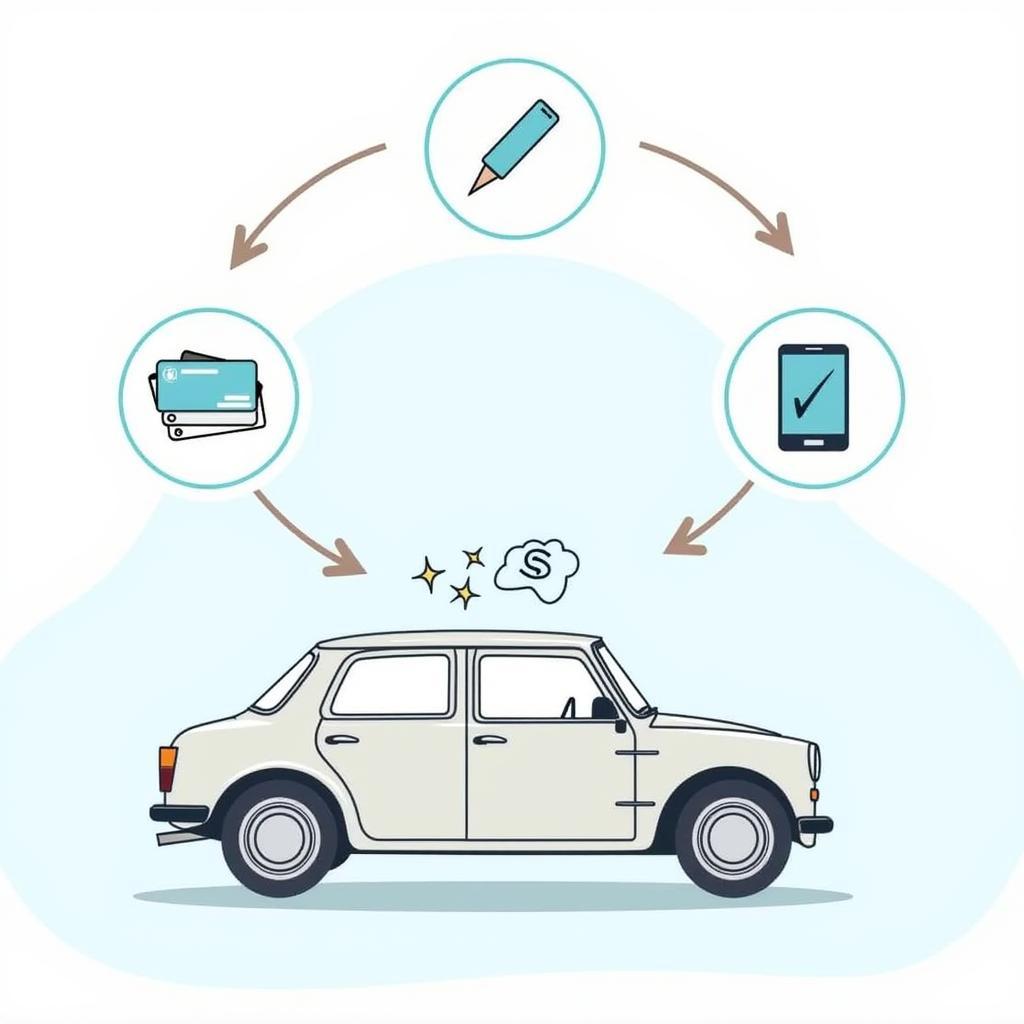Getting a rebuilt title on your car can be a good way to save money, but what about your car insurance? You might be wondering if a rebuilt title will impact your insurance premiums. The short answer is, it depends.
Here’s a breakdown of what to consider:
What is a Rebuilt Title?
A rebuilt title is issued to a vehicle that has been declared a total loss by an insurance company and has subsequently been repaired to a safe and roadworthy condition. This can occur due to an accident, fire, theft, or natural disaster. While a rebuilt title doesn’t mean the car is unsafe, it does indicate a history of significant damage.
Why Does a Rebuilt Title Impact Car Insurance?
Insurance companies assess risk when calculating your premiums. A rebuilt title, while not always a guarantee of future problems, signifies a higher risk than a clean title. This is because:
- Repaired Damage: Even expertly repaired vehicles may retain some vulnerabilities.
- Parts Quality: Rebuilt vehicles might use aftermarket parts that may not meet the same quality standards as original equipment manufacturer (OEM) parts.
- Higher Repair Costs: Repairing a rebuilt vehicle after a subsequent accident might be more expensive due to potential complications.
Does a Rebuilt Title Automatically Mean Higher Premiums?
Not necessarily. Factors that influence your insurance premiums include:
- Your Driving History: Your driving record, including accidents and violations, plays a significant role.
- Vehicle Age and Make: The age and type of vehicle can affect insurance costs.
- Location: Your location and the risk factors associated with it, like theft rates, also influence your premiums.
- Coverage Levels: The type and amount of coverage you choose, such as comprehensive and collision, will impact your premiums.
How to Mitigate Higher Premiums
Here are some strategies to help keep your insurance costs manageable:
- Shop Around: Compare quotes from multiple insurers. Each company has its own risk assessment and pricing models.
- Consider a Deductible: Opting for a higher deductible can lower your premiums.
- Improve Your Driving Record: Avoiding accidents and traffic violations can earn you discounts.
- Maintain a Good Credit Score: Some insurers consider your credit score when setting rates.
Expert Insights:
“A rebuilt title doesn’t necessarily mean you’ll be stuck with sky-high premiums. By being transparent with your insurer and taking steps to mitigate risk, you can potentially get a fair rate.” – John Smith, Licensed Insurance Agent
“It’s crucial to understand that insurance companies view rebuilt vehicles with a degree of caution. Be prepared to provide detailed documentation and a clear explanation of the vehicle’s history.” – Jane Doe, Automotive Repair Specialist
Frequently Asked Questions
1. Is it legal to drive a car with a rebuilt title? Yes, it’s legal as long as the vehicle has been repaired to meet safety standards and the title has been properly issued.
2. Will a rebuilt title affect my ability to sell the car? Yes, it can make selling a rebuilt vehicle more challenging and potentially reduce its resale value.
3. Can I get a rebuilt title removed from my car? It’s unlikely. Once a vehicle has a rebuilt title, it remains on the record.
4. How do I find out if a car has a rebuilt title? You can check the vehicle history report through services like Carfax or AutoCheck.
Conclusion
While a rebuilt title may impact your car insurance premiums, it doesn’t necessarily mean you’ll be facing exorbitant costs. By understanding the factors influencing insurance rates and taking proactive steps, you can potentially mitigate the financial impact and secure a reasonable policy. Remember, transparency and honesty are key when working with your insurer.

